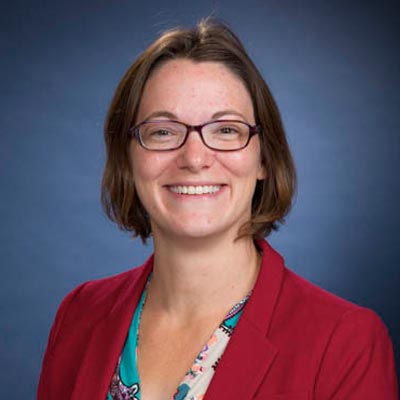Biomaterials hold many applications in biomedical engineering from tissue regeneration to disease treatment to understanding health and diseased tissues. The Functional Biomaterials Lab at Worcester Polytechnic Institute (WPI) is developing biomaterials strategies to address challenges in cancer treatment.
This presentation will focus on two areas of ongoing research: (1) developing in vitro cancer models using a silk scaffolding approach, and (2) affinity-based drug delivery systems for local administration of anti-cancer drugs. This talk will describe how we impart form and function to biomaterial systems for these applications with the ultimate goal of identifying or developing strategies for improving cancer treatment.

Dr. Jeannine M. Coburn is the principal investigator of the Functional Biomaterials Lab and an Assistant Professor at Worcester Polytechnic Institution in Massachusetts. She earned her bachelor’s degree in chemical engineering from the University of Massachusetts, Amherst in 2006 and doctoral degree in Chemical and Biomolecular Engineering from Johns Hopkins University 2012 (NIH NRSA predoctoral fellow). Prior to joining WPI, she completed an NIH NRSA postdoctoral fellowship at the Tufts University under the mentorship of Prof. David L. Kaplan. She joined the faculty at WPI in the summer of 2016 with a collaborative appointment in Chemical Engineering.
Dr. Coburn has authored 54 peer-reviewed journal articles, 1 book chapter, and 5 review articles, and is co-inventor on two patents. Her expertise is in the area of biomaterials with applications in drug delivery, tissue engineering, and disease modeling. Her current biomaterials of interest include silk fibroin, chondroitin sulfate, bacterial-derived cellulose, and other polysaccharides with research focused on in vitro solid tumor modeling, biomaterial surface and backbone modifications for functionality, oncology drug delivery, antimicrobial wound dressings, and decellularization of plant cell- and tissue-derived matrices.